Meet the Women Leading Our Grantee Organizations
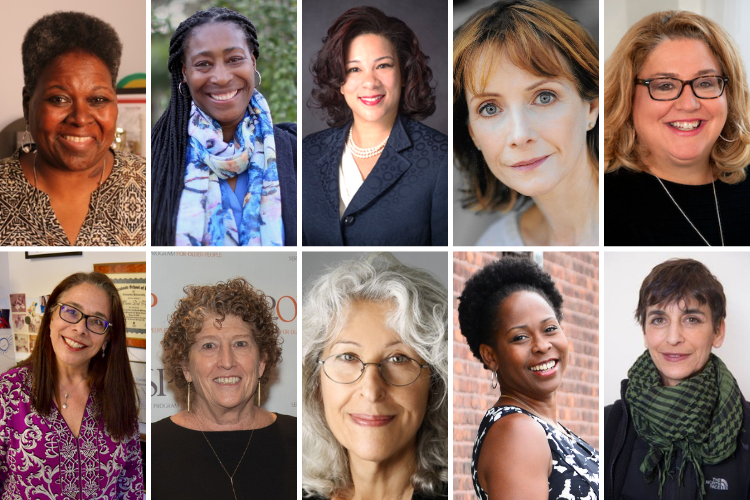
Every year, Columbia Community Service supports dozens of organizations serving Morningside Heights and Harlem. Many of these organizations, which provide food relief, social services, and educational support to residents of the area, are headed by remarkable and dedicated women. With backgrounds in everything from theater to early childhood education, they have put in years of work to build up organizations that support and enrich the Upper Manhattan community. Learn more about 10 of them now.
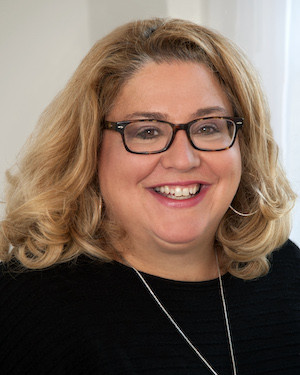
Jackie Ceonzo
Ceonzo is the founder and executive director of SNACK* and Friends (Special Needs Activity Center for Kids and *Adults), which provides recreational activities for children, teens, and adults, as well as prevocational training and job opportunities for individuals of all capabilities.
What’s your inspiration for serving in this role?
The inspiration is my son Joe, who has special needs, and all the families like ours, struggling to find quality programming and help our kids live a full life.
How does your organization positively impact Harlem, Morningside Heights, and New York City?
SNACK* serves many families who reside in Harlem and Morningside Heights who are not able to find suitable programs and services that address their child’s needs, or who may have been turned away from other programs as they are not able to accommodate their child’s specific needs. SNACK* is one of the few programs that offer quality programming in this area.
What’s your superpower?
Making people feel included.
What’s a tip you have for other women in nonprofit leadership roles?
Take care of your staff.
What’s your favorite place in New York City?
Central Park.
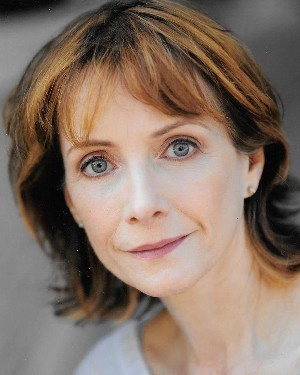
Susanna Frazer
Frazer has served as the artistic director of The Morningside Players since 2011. Founded in 1974, the troupe is based within the Morningside Gardens Housing Cooperative at Broadway and LaSalle Street. They provide pay-by-donation performances of classic plays, developmental readings, and present vibrant new works in a welcoming and amiable setting.
What’s your inspiration for serving in this role?
I had just gotten my MFA in theater directing from Brooklyn College and it was wonderful artistic serendipity that The Morningside Players were deciding to have a more structured leadership team. I've been an actor and director for many years, and totally believe in live, affordable theater.
How does your organization positively impact Morningside Heights and New York City?
Because we have such a diverse community – both at our home base in Morningside Gardens and the surrounding neighborhood, we have featured many plays with vivid social, political, and ethnic themes. Our award-winning productions of Fences and A Raisin in the Sun drew crowds from all over the area and we are so pleased that a lot of our audience saw theater for the first time. We recently led a CCS-sponsored Page to Stage project for teen youth in the neighborhood to write and perform their own work.
What’s your superpower?
Dogged volunteers!
What’s a tip you have for other women in nonprofit leadership roles?
Don't be afraid to admit what you don't know yet, and keep asking questions and finding mentors (or at least experienced opinions and similar organizational paths).
What’s your favorite place in New York City?
- Our basement stage!
- The 42nd St Library
- Ellington in the Park at Riverside Drive and 105th St.
- Lincoln Center
- Fraunces Tavern
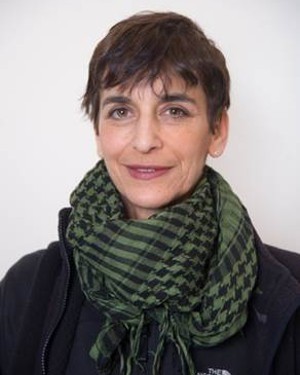
Naomi Goldberg Haas
Since founding Dances for a Variable Population in 2005 to promote strong and creative movement among all people with a special focus on older adults, Goldberg Haas has served as the organization's artistic director, as well as a dancer, master teacher, and choreographer.
What’s the inspiration that drives your work?
To inspire and motivate older adults to live more creative, healthy, and meaningful lives.
How does your organization positively impact the community?
We do just that, inspire and motivate older folks and they become more visible as powerful members of the community. We use the power of dance to ignite a more creative, connected, and healthy lifestyle.
What’s your superpower?
My endless energy!
What’s a tip you have for women rising in nonprofit leadership?
Go with your heart – you will figure out the “hows” as you encounter obstacles – have faith!
What’s your favorite place in New York City?
The Hudson River, Riverside Park, and the High Line!
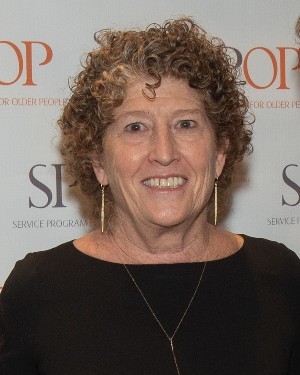
Nancy Harvey
Harvey has held a leadership role at Service Program for Older People (SPOP) since 1990. She was the executive director until 2014, and has been the CEO since then, giving her 32 years at the helm of the organization. SPOP works to meet the comprehensive behavioral health needs of older adults with health care and social services.
What’s your inspiration for serving in this role?
As a social work student, I became aware that many older adults suffer from mental health disorders that could be easily treated – disorders that can affect their overall health and ability to live independently. I chose to devote my career to making mental health care accessible to older adults, particularly those who are homebound, socially isolated, or financially disadvantaged.
How does your organization positively impact Morningside Heights, Harlem, and New York City?
This year we will provide services to more than 250 residents of Morningside Heights and Harlem. Those services include individual, group, or family therapy; psychiatry and medication management; bereavement support; assessments for mental illness, substance misuse, and social determinants of health; and linkages to other service providers as needed. We offer services by telehealth, at our offices on the Upper West Side, and at a clinic satellite co-located at Red Oak Senior Center on West 106th Street. Outcomes of our work include improved quality of life and reduced demand on the 911 system.
What’s your superpower?
The team of dedicated professionals who run our programs.
What’s a tip you have for other women in nonprofit leadership roles?
Network with others, stay informed on trends in your industry, and assemble the best team you can find.
What’s your favorite place in New York City?
Central Park.
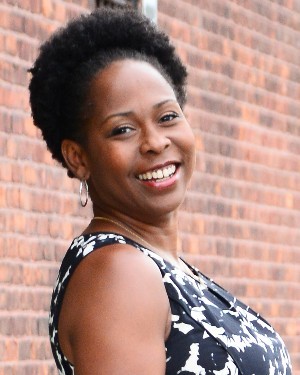
Wendy Hilliard
Hilliard, a member of the United States Gymnastics Hall of Fame and a former Olympic gymnastics coach, founded the Wendy Hilliard Gymnastics Foundation in 1996 and still serves as its CEO.
What’s your inspiration for your work?
I wanted to provide low-cost and free gymnastics to urban youth, like I had access to growing up in Detroit. After coaching an Olympian, I wanted to go back to grassroots gymnastics. I had to make it happen myself.
How does your organization positively impact Harlem, Morningside Heights, and New York City?
After so many years we now have second-generation gymnastics students. We have staff that works for us that grew up with our program. When folks say they took gymnastics growing up and they lived in Harlem or Upper Manhattan it is most likely they took gymnastics with us. It is very heartwarming. It is still rare in the sport of gymnastics to have leaders, gymnastics teachers, and support staff that reflect the population we serve.
What’s your superpower?
Determination.
What’s a tip you have for other women in nonprofit leadership roles?
Ask for what you need and want. Stay at it and be in the room.
What’s your favorite place in New York City?
Wherever the art is. Or the water and the parks.
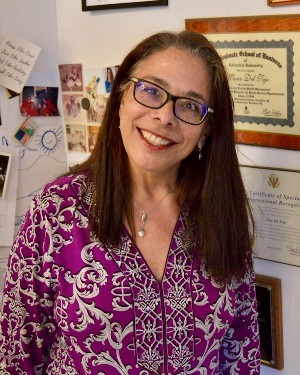
Marie del Tejo
Del Tejo, the executive director of Advancing the Community of Tomorrow (ACT) at the Cathedral Church of St. John the Divine, has worked in education since 1980 and at ACT since 1990.
What’s your inspiration for this work?
Working my way through college with babysitting jobs and in my daycare business, I found it inspiring to see children learn. My 42 years in the educational field led me to want to work not only with individual children, but to support their families and caregivers as if they were a part of my own.
How does ACT positively impact Morningside Heights, Harlem, and New York City?
Since its founding in 1971, ACT programs have evolved and expanded to meet the variety of development and enrichment needs for the young people in our community. We provide a safe, nurturing environment and a variety of programs to help the diverse population of children grow as individuals. Our educational environment is facilitated by caring, highly trained leaders. We provide a center for parents and caregivers to expose children to more diverse groups, so children could be compassionate, caring, and accepting of peers and embrace their individualities.
What’s your superpower?
My love for learning.
What’s a tip you have for other women in nonprofit leadership roles?
Embrace the challenges, as there will be many. Accept them and learn more about the role. Don’t be afraid to network as there are so many who want to help. Understand that it takes time to get established, but the journey will be its own reward.
What’s your favorite place in NYC?
The grounds of The Cathedral Church of St. John the Divine, where I find hidden corners to reflect and center my soul. This is where I find inspiration to meet the challenges along the path to success.
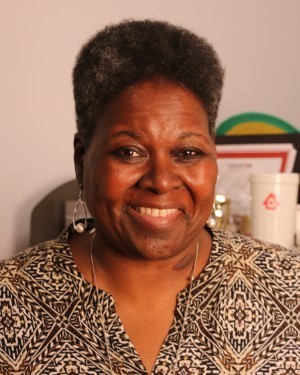
Kym Watson
After growing up in Brooklyn and attending Fordham University, Watson joined Graham Windham in 2010, and became the President & CEO in 2021. Graham strives to alter lives by building a strong foundation for life: a safe, loving, permanent family and the tools to thrive in school and in the world.
What’s your inspiration for this work?
I briefly spent time in the city's foster care system, and I worked as a caseworker in the 1980s. I later led efforts related to the criminal justice system. Growing up and raising my family in Brooklyn, I've had a front-row seat to life in underserved communities.
How does Graham Windham positively impact Harlem and New York City?
Graham Windham has been serving the Harlem community for over 35 years and has had a Cornerstone community center in the Manhattanville Houses since 2014 that reaches 250 K-12 youth annually. Since 2010, our Harlem Beacon has reached 200 K-12 youth annually. Both of these programs provide children and youth with a range of support and enrichment activities. We also provide programming for adults on topics including school application processes, advocacy, and voter engagement.
What’s your superpower?
Strong active listening skills and an understanding of spoken and non-verbal communication to build trust and relationships.
What’s a tip you have for other women in nonprofit leadership roles?
Don’t be afraid to challenge yourself, trust your instincts, and listen and learn from the people and experiences you encounter.
What’s your favorite place in NYC?
I particularly like the 3rd Avenue and 149th Street area in the South Bronx as it is always vibrant and infused with color and creativity, and I've enjoyed watching the neighborhood’s revitalization since my time as a Fordham student.
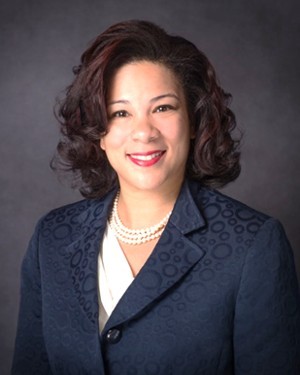
Angela Williams
The executive director of Common Denominator, Williams works to create ecosystems of sustainable learning and provide access to opportunities in fragile communities to promote social mobility and economic independence
What’s the inspiration that drives your work?
My mother was a powerful role model and she instilled within me the importance of giving back and helping others. She bestowed upon me a wealthy inheritance of inner riches including self-esteem, self-confidence, self-efficacy, and self-determination; coupled with access to external riches such as mentors, educators, and sponsors, to ensure my future success.
These real-life experiences, coupled with my undergraduate and graduate studies, provided me with the opportunity to learn about the value of having a commitment to education, the benefits of coaching and mentorship, and the importance of developing ecosystems of sustainable learning in fragile communities, to promote social mobility and economic independence.
How does the work of your organization positively impact the community?
Common Denominator’s mission is to help in-need middle school students love math and build confidence through tutoring and mentorship. Our goal is to ensure education equity for all. Our students identify with math, build confidence through math tutoring and mentorship, and develop a keen interest in math as it relates to the world around them.
Common Denominator successfully transitioned our in-person program to virtual within two-weeks of the shelter in place order and continued to provide core foundational math tutoring for in-need students and families in a fun-filled and safe environment.
To meet the ever-growing needs of our students, we partnered with struggling schools, corporations, and community-based organizations, to provide daily tutoring during the school day and out-of-school time. As a result, we increased our daily math tutoring sessions by 100% and offered small group tutoring, encouraging peer-to-peer learning. At Common Denominator we bring people together to ensure that our communities continue to thrive and grow.
What’s your superpower?
I am passionate about empowering women, children, and families in underserved communities, so that they can move from poverty to prosperity. This type of work is a calling and every day I rise to answer that call. I use my superpowers to break down barriers to success, serve as a voice for the voiceless, and assert my role as a change agent to help individuals rise above their circumstance, no matter their socio-economic background, zip code, or assumed trajectories. Every child has the right to dream, to experience happiness, to feel secure, to be empowered to pursue their education and career goals, to ignite their inner passion and achieve self-defined success. I proudly answer that call!
What’s a tip you have for women rising in nonprofit leadership?
Tip #1: When an opportunity for promotion comes your way, do not hesitate to throw your hat into the ring.
I read a study that changed my outlook on reviewing job descriptions, forever. In the study, which surveyed women and men in leadership roles across the employment and demographic spectrum, both women and men would be given a job description with five key responsibilities. Women would review the five key responsibilities and if they did not possess one out of the five responsibilities, they would opt out of applying for the position. However, men would review the five key responsibilities and recognize that they only possessed two out of the five responsibilities and not only would they still apply for the position, but they would think that it was acceptable to learn the other three areas on the job.
Tip #2: Do not hesitate to garner a powerful mentor that mirrors you and shows you what can be obtainable.
What’s your favorite place in New York City?
My favorite place is Harlem. Although I am a Bronx native, I love the rich heritage, robust culture, and diversity of Harlem. Harlem has it all, good people, eateries, attractive music clubs, lounge bars, art, and activism.
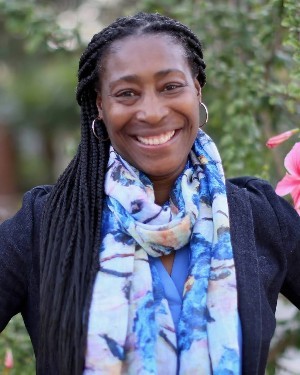
Vivian Williams-Kurutz
Williams-Kurutz is the founder and executive director of the Harlem Wellness Center. Since 2003, she has been building a dynamic, diverse, and close-knit community devoted to creating a city-wide, grassroots movement for health equity, racial healing, and healthy communities.
What’s your inspiration for this work?
Harlem Wellness Center (HWC) was born out of a calling to improve quality of life by addressing health disparity as a means to support individuals and families in reaching their highest potential and aspirations. In 2003, I began leading community yoga and healthy living workshops in Harlem. Between 2008-2013 I created and led Harlem Center for Healthy Living. In 2013, I, along with a team of community members and stakeholders, started HWC to actualize the fullest expression of the vision for my community.
How does the Harlem Wellness Center positively impact Harlem and New York City?
My work focuses on leveling the playing field by making high quality health and wellness activities accessible for populations most exposed to adult onset diseases. HWC serves Harlem and Morningside Heights through collaborative partnerships with community-based organizations, faith-based organizations, schools, housing, and institutions anchored in this target geographic area.
What’s your superpower?
Community building! Bringing diverse groups of people together to celebrate our differences and common humanity.
What’s a tip you have for other women in nonprofit leadership roles?
Band together in support groups where you can take off your superwoman capes and be honest, vulnerable and generous with one another. All the wisdom you're looking for will be found in that room.
What’s your favorite place in NYC?
Hudson River Greenway, NYC Parks. Water and trees!
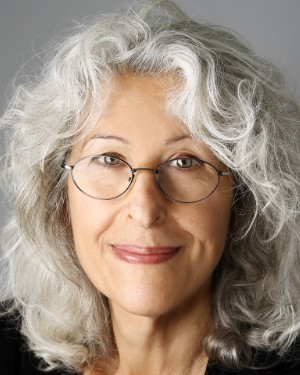
Irene Zola
Zola, the executive director of Lifeforce in Later Years (LiLY), founded the organization in 2009. In 2010, Zola was a “CNN Hero,” and in 2012 was recipient of AARP’s “Inspire Award.” With LiLY, she manages fundraising, strategic planning, and more so that the organization can provide support for as many seniors as possible in Morningside Heights and West Harlem.
What’s your inspiration for serving in this role?
Through personal family health care, I was able to witness firsthand what could go wrong for an elderly person when institutionalized. I did my research and thought creatively about how a community could help care for an elderly resident who wanted to age at home. I went to work and organized a small network of volunteers, and the idea of community elder-care became a reality. Inspired by what neighbors could do, I went on to help expand the organization in Morningside Heights and then in West Harlem.
How does your organization positively impact Morningside Heights and New York City?
LiLY currently serves approximately 225 seniors who are able to age in their own homes; approximately 45 of whom speak only Spanish. These individuals are helped in a myriad of ways by LiLY staff and approximately 100 volunteers, who also gain community connections as they serve. LiLY also benefits partners that refer seniors in need.
What’s your superpower?
Just one? Learning from my mistakes.
What’s a tip you have for other women in nonprofit leadership roles?
Man or woman, think it over first.
What’s your favorite place in New York City?
My rooftop when no one else is there. Otherwise, Riverside Park.
